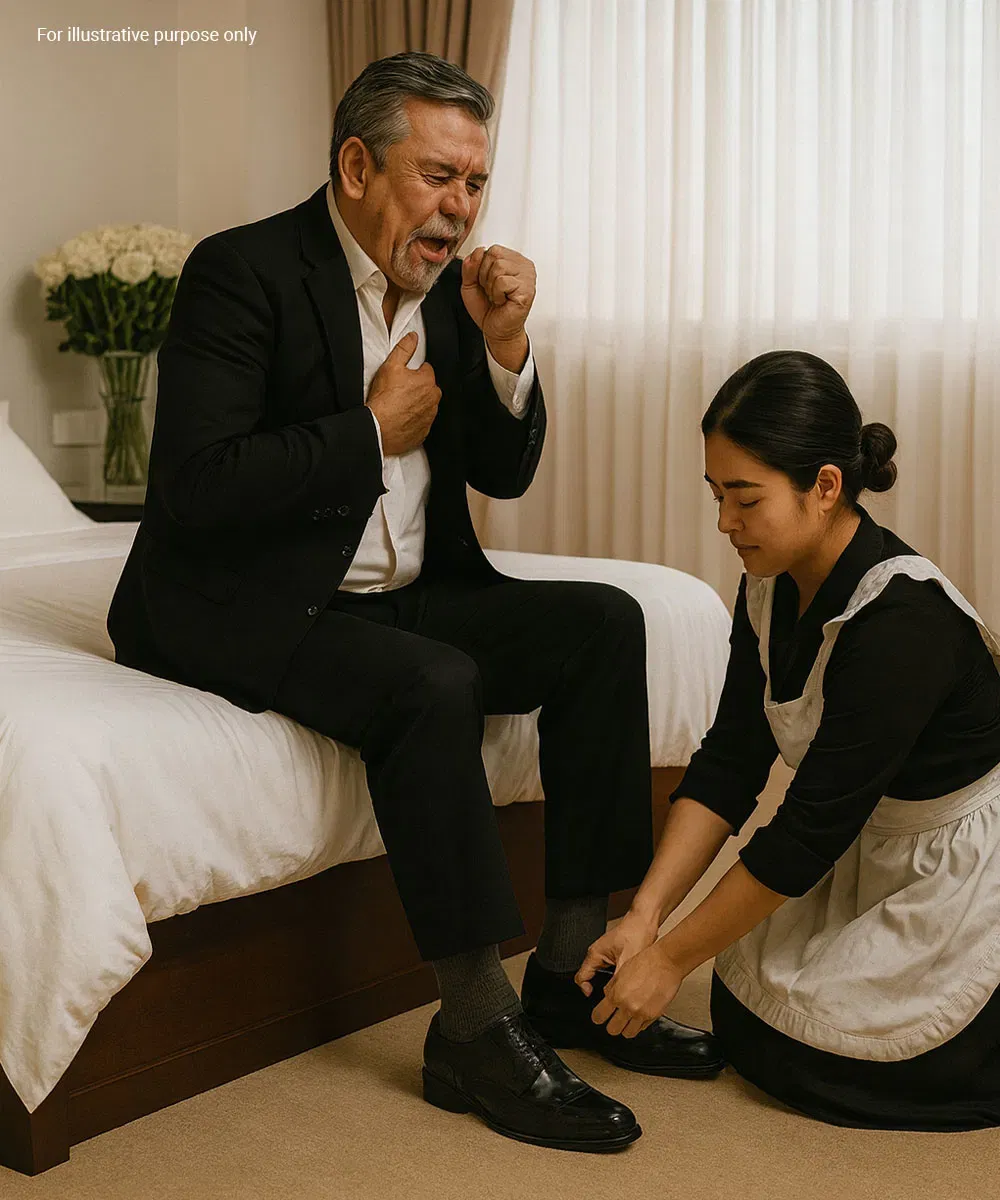My father-in-law was 70 years old. After my mother-in-law passed away, he lived alone. He was still strong in appearance, but deep down, we knew the solitude weighed heavily on him. To help him, we decided to hire a maid. Her name was Esmeralda, a 29-year-old woman from a nearby village. She was polite, soft-spoken, and carried herself with an innocence that put us at ease.

At first, I told myself that this was a good decision. Having someone around to keep him company, cook, and take care of the house would make his days easier. I thought as long as there were no problems, it would be fine. What I did not realize was how quickly things could change when someone lonely meets someone who knows how to fill that void.
Initially, Esmeralda acted like any other maid. She cleaned, prepared meals, and followed instructions. But slowly, her position in the house shifted. She no longer seemed like a hired helper but someone who had found a way to occupy his thoughts. She became his confidante, and their conversations grew more personal with each passing day.
Months later, he shocked us all. One afternoon, he called the family together and, with a trembling but firm voice, he declared, “I want to marry Esmeralda. She is carrying my child. You can object, but I will not regret it.” The silence that followed was overwhelming. None of us knew how to respond.
The family’s reaction was immediate. My brother-in-law broke into tears out of anger, unable to believe what he was hearing. My husband jumped up, completely stunned, refusing to accept that his father could think this way. The room was filled with disbelief. To us, Esmeralda seemed like a gold digger, someone who had cleverly taken advantage of a vulnerable old man who had already lived most of his years.
Still, my father-in-law was determined. He began making plans for a wedding, even though his health was clearly declining. His face grew pale, and his body seemed weaker each day. Yet his insistence on marrying her never wavered. Then one afternoon, while he was outside in the yard, he suddenly collapsed.
We rushed him to the hospital, but his condition worsened. After a week, he passed away. His death left us heartbroken, but what came next left us equally stunned. Among his belongings was a handwritten will, scribbled shakily but clearly. In it, he divided his assets equally among his children.
Yet my father-in-law made one exception.
He wrote that the house he lived in would belong to Esmeralda and her son as a belated wedding gift.
The discovery sparked anger and confusion. We could not believe that despite everything, he had left her such a gift. But the final shock had yet to come.
When it was time to process the baby’s birth certificate, Esmeralda presented us with a folded paper. Without saying a word, she handed it over. It was a DNA test. The results were undeniable. The baby she was carrying was not my father-in-law’s child.
The truth hit like a storm. Esmeralda had deceived him. She had seen a wealthy, lonely man and planned to secure her future by pretending to be pregnant with his child. The DNA test confirmed she had been lying from the beginning.
It was later revealed that my father-in-law had secretly gone for a medical checkup. He must have suspected something or perhaps wanted to confirm what he already feared. The doctors diagnosed him with long-standing infertility, a condition caused by complications from an earlier prostate surgery.
This meant that he had known all along he could not father a child. Yet he kept quiet. He never confronted her or revealed the truth to us. Perhaps he chose silence because he wanted to keep the illusion alive. Maybe he wanted to feel that even in his old age, he still had a chance to be a husband and a father once more.
When I held his medical report and re-read the will, tears filled my eyes. The anger I had once felt toward Esmeralda faded into something different. What remained was sorrow. I realized how deeply he must have longed for affection. He had spent his life providing for his family, raising his children, and living responsibly. But at the end of his life, what he wanted most was to feel loved, even if it was built on a fragile illusion.
This shocking truth about the father-in-law and the young maid is not only about deception but also about human weakness. My father-in-law was not blind. He likely saw through her lies but chose to hold on to the feeling she gave him. He wanted warmth, companionship, and the belief that life still had something to offer.
This story changed the way I see old age. It is not only about health or money. It is about the need for human connection, the fear of being alone, and the vulnerability that comes when years weigh heavily on the heart.
Even though the maid betrayed his trust, my father-in-law’s actions showed me how powerful the desire to love and be loved truly is. It is a reminder that people, no matter their age, still carry dreams, still hope for closeness, and still crave affection.
As a family, we struggled to accept the situation. Some of us stayed angry at Esmeralda, while others simply pitied her. But in the end, what stood out most was the silent sadness of an old man who wanted to believe he was still strong, still capable of giving and receiving love.
The shocking truth about the father-in-law and the young maid is something I will never forget. It revealed not only the cunning side of human behavior but also the fragile beauty of hope, even in life’s final chapters.
